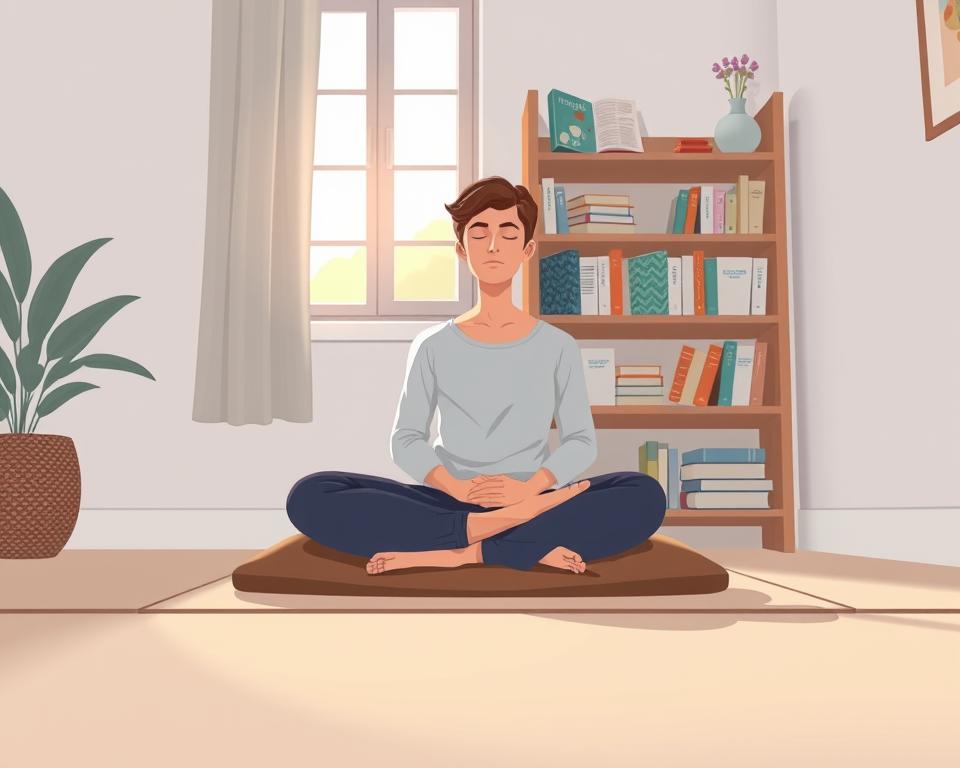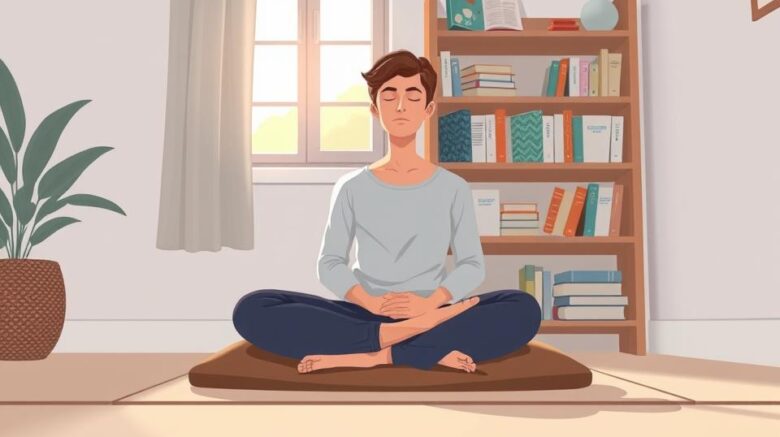Specialized Psychological Mental Health Counseling Assistance
In times of uncertainty, beginning recovery often starts with reaching out for help. Many find solace in expert clinical mental health counseling. It offers a safe space for transformation and new perspectives. When struggling with anxiety, depression, or emotional wounds, personalized mental health guidance is critical. Such support recognizes each individual’s personal journey and requirements.
Professional counseling offers customized methods that honor personal differences. Here, we examine the role of clinical virtual couples therapy near me. We show how expert help can strengthen resilience and overall wellness.
- Clinical mental health counseling delivers customized support for various psychological and psychological challenges.
- Expert counseling is vital for identifying individual needs and developing suitable strategies.
- Mental health guidance plays a major role in personal growth and recovery.
- Each person’s journey is unique, requiring customized treatment approaches.
- Seeking help is a strong first step toward achieving mental well-being.
Learning About Clinical Mental Health Counseling
Clinical mental health counseling is about diagnosing and treating emotional and behavioral issues. It is key to improving overall well-being and managing mental disorders. Counselors create a safe space for clients to explore their challenges and find coping strategies.
Those in the profession employ various understanding counseling methods. Approaches can include:
- Problem-solving strategies to help clients tackle specific issues.
- Therapy techniques tailored to individual needs, such as cognitive-behavioral therapy or person-centered therapy.
- Support and encouragement to foster resilience and empower clients in their healing journey.
When prioritizing mental health support, counselors significantly contribute to better personal well-being. We should value their part in aiding recovery and boosting life quality.
Different Types of Mental Health Professionals
Understanding the various mental health professionals is key when seeking care. Their qualifications, expertise, and methods vary. Understanding these differences is important for anyone seeking help.
- Psychiatrists: Psychiatrists are physicians who focus on mental illness and prescribe medicines. They manage complex conditions requiring pharmacological treatment.
- Psychologists: Focused on therapy, psychologists hold doctoral degrees in psychology. They use various techniques but do not prescribe medications.
- Licensed Counselors: Licensed counselors hold a master’s in counseling or similar disciplines. They provide therapy to address emotional and life challenges.
- Clinical Social Workers: Trained in therapy and resource connection, clinical social workers have master’s degrees in social work. They aim for well-rounded support and treatment.
- Psychiatric Nurses: Advanced practice psychiatric nurses assess, diagnose, and treat mental health disorders. They provide hands-on care and in some states, prescribe medications.
Different specialists serve different mental health purposes. While finding local counseling services, consider the variation in roles. This helps find the right mental health experts for your needs. Clarity about these roles supports better care and wellness.

How to Select the Right Mental Health Specialist
Finding the right mental health specialist is crucial for positive outcomes. First, clarify the issues you want to address. Different issues need different specialties. That’s why knowing your needs is critical when choosing. When searching for mental health counseling programs near me, review provider credentials and past work.
Verify the credentials of the professional you’re considering. Make sure they have the right licenses and experience in treating your condition. Medication needs mean you should consult someone licensed to prescribe. Finding help also means ensuring your chosen provider accepts your insurance, as coverage can vary greatly.
After you’ve reduced your options, get ready with a question list. Inquire about their treatment approach, experience with similar conditions, and the therapeutic techniques they use. Such details can strengthen your selection confidence.
Your first visit for mental health counseling is a significant step towards addressing emotional or psychological concerns. This begins with a first evaluation to understand your needs. You’ll discuss your symptoms, mental health history, and what you hope to achieve from therapy. Each part of this conversation is key in shaping your therapy journey.
Creating a good connection with your therapist is important. Clear dialogue underpins successful therapy. They’ll steer the conversation to help you feel relaxed. You will agree on set aims for your sessions.
You might be anxious before your initial visit. Being aware of the process can reduce nerves. Remember, this session is tailored for you. It’s a chance to express your feelings and create a treatment plan that suits your needs. Take this chance for development and recovery as you begin.
Common Therapies and Approaches in Mental Health Counseling
This form of counseling offers multiple treatment approaches for varied emotional needs. Understanding these common therapies mental health allows individuals to select the most effective approach for their unique situations. Cognitive-behavioral therapy (CBT) is one of the popular therapeutic approaches, recognized for its structured methodology in altering negative thought patterns.
Psychodynamic therapy delves into unconscious processes and historical influences, providing insights into emotional struggles. For those seeking a more person-centered approach, humanistic therapy focuses on self-actualization and personal growth. Each method has a place depending on the unique needs of the person.
Group and family therapy also serve as significant options. These settings promote understanding and connection. Joining with relatives or peers in counseling can deepen bonds and bring shared understanding. If looking for therapy nearby, check the range of group and family options.
Clinical Mental Health Counseling Techniques
In the field of clinical mental health counseling, specific techniques are vital for effective counseling. They are made to fit the goals and needs of each person. Mindfulness helps clients watch thoughts and emotions without judgment. It’s widely used in mental health treatment for boosting self-awareness and lowering anxiety.
Another major tool is behavioral activation. The aim is to involve clients in activities that matter to them. This approach helps improve mood and overall well-being, providing a structured path in mental health treatment.
Detailed evaluations are part of therapy work. These assessments help identify the most effective techniques for each client. The collected information allows for the creation of personalized treatment plans, ensuring the methods align with the client’s specific needs.
Many sessions include exercises to apply learning. Clients can test and use skills between sessions. Applied correctly, these tools can improve progress.
The Role of Medication in Mental Health Treatment
Medication is a vital part of mental health treatment, helping those with depression, anxiety, and bipolar disorder. Psychiatrists or nurse practitioners may provide psychiatry services near me. They adapt medicine plans to the individual.
Being informed about medication is essential. They ease symptoms so people can enjoy life and attend therapy. Best effects come from combining both counseling and medicine. This approach improves treatment results and offers complete support.
A key is keeping communication open between doctor and patient. It covers dosages, side effects, and how well the medication works. It allows fast adjustments through patient input. It shows the need for awareness and fine-tuning treatment.
Adding medication to mental health treatment can greatly improve well-being. Often, the mix of counseling and medicine works best.
Making the Most of Mental Health Coverage
Understanding your mental health insurance is key to getting the care you need. Rules vary between insurers. Check exactly what is covered. Start by checking the list of conditions and therapies your plan includes.
Seeing an in-network provider cuts costs. You’ll pay less for counseling if your provider is in-network. Check if your preferred provider is in-network by calling your insurance or using their online directory.
Don’t forget to ask about coverage for therapy and medication. Some insurance handles them differently. Know your payment responsibilities. By doing this, you can make sure you get the most from your insurance.
Building Mental Health Coping Skills
Using coping techniques boosts stress control and strength. They support better handling of life’s difficulties. Pick methods that fit you best.
Make your strategies last. Keep practicing to strengthen them. These strategies prepare individuals to tackle future challenges with confidence.
Resources for Ongoing Support
Continued support is important for staying well. Support groups and networks offer assistance. Local meetups help people feel connected. Searching for mental health resources near me can reveal therapy, workshops, and peer programs.
Reputable organizations such as the National Alliance on Mental Illness (NAMI) and Mental Health America offer valuable information and emotional support. They focus on raising awareness and providing tools for navigating the mental health landscape. Their websites provide strong ongoing support.
Staying in touch with mental health providers ensures a continuity of care vital for recovery. Talking often lets treatment be adjusted. Engaging with support networks helps individuals feel less isolated, making the journey toward better mental health a collaborative effort.
Wrapping It Up
This review shows why expert guidance matters. It’s essential for emotional and mental health goals. Improving mental health needs teamwork and skilled support.
Proactive steps in finding resources that match individual needs can greatly impact one’s mental health. Learning about professionals, therapy, and coping skills is necessary. Each plays a role in wellness.
Mental health should be top priority in today’s busy life. Reflecting on the significance of expert guidance, remember that seeking help is a commendable step towards a healthier, more fulfilling life. These resources mean you face mental health struggles with help.
